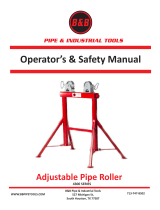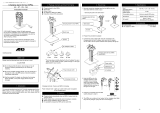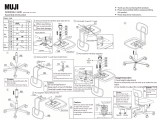
Look behind and down before backing up to
be sure of a clear path.
Do not carry passengers.
Never operate while people, especially
children, or pets are nearby.
Slow down and use caution when making
turns and crossing roads and sidewalks.
Stop the blades rotating before crossing
surfaces other than grass.
Disengage drive to attachments when
transporting or not in use.
When using any attachments, never direct
discharge of material toward bystanders nor
allow anyone near the machine while in
operation.
Do not operate the machine under the
influence of alcohol or drugs.
Take care when loading or unloading the
machine into a trailer or a truck. Load or
unload the machine in a flat and safe place.
Before loading or unloading, set the parking
brake on the truck or trailer, stop the engine,
and chock the wheels.
When transporting the machine on a truck or
a trailer, set the parking brake, stop the
engine, and fasten the machine to the truck
with a rope or other suitable restraining
device that has sufficient strength.
When using a running board, select one with
sufficient strength, length, and width and that
will not cause the machine to slip.
Close the fuel valve before transporting the
machine.
Use care when approaching blind corners,
shrubs, trees, or other objects that may
obscure vision.
Do not take your eyes off the road ahead. Do
not operate the machine with no hands.
Reduce the throttle setting during engine
run-out and, if the engine is provided with a
shut-off valve, turn the fuel off at the
conclusion of operation.
10.
11.
12.
13.
14.
15.
16.
17.
18.
19.
20.
21.
22.
Maintenance and storage
Disengage drives on level ground, lower the
attachments, set parking brake, stop engine
and remove key from ignition. Wait for all
movement to stop before adjusting, cleaning
or repairing.
When machine is to be parked, stored, or left
unattended, lower the cutting units unless a
positive machanical lock is provided.
To reduce the fire hazard, keep the engine,
silencer/muffler, battery compartment fuel
storage area, cutting unit and drives free of
grass, leaves, or excessive grease. Clean up
oil or fuel spillage.
Allow the engine to cool before storing in any
enclosure.
Only cover the machine with a sheet after
hot parts have sufficiently cooled down.
Never store the equipment with fuel in the
tank inside a building where fumes may
reach an open flame or spark.
If the engine is provided with a shut-off
valve, shut off valve while storing or
transporting.
Do not store fuel near flames.
Never allow untrained personnel to service
machine.
Allow the engine/muffler to cool before
checking/maintenance.
Appropriately manage and correctly use the
tools necessary for servicing or adjusting the
machine.
Use jack stands to support components
when required.
Carefully release pressure from components
with stored energy.
Be sure to depressurize the hydraulic system
before performing maintenance operations
on it such as removing hydraulic equipment.
Check whether line connectors in the
hydraulic system are properly tightened.
Before applying hydraulic pressure, check
the connections of the hydraulic pressure
lines and the condition of the hoses.
1.
2.
3.
4.
5.
6.
7.
8.
9.
10.
11.
12.
13.
14.
15.
LM315GC
Safety
Page 1-4
Safe Operating Practices























